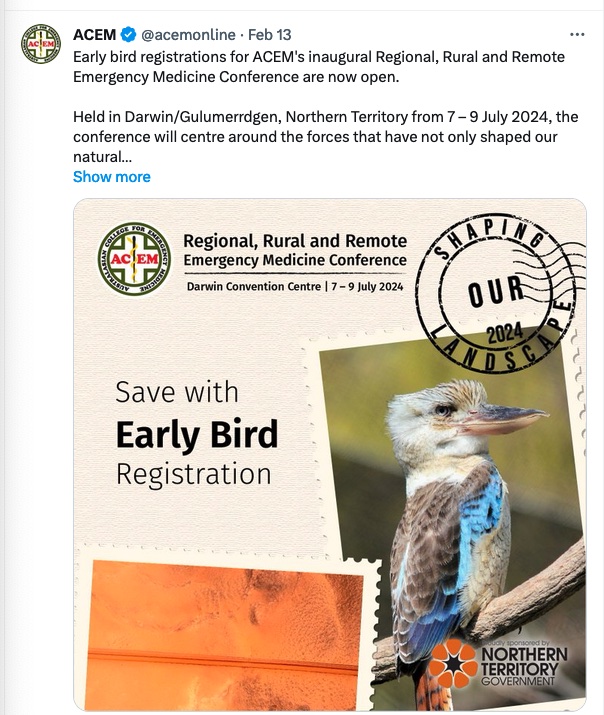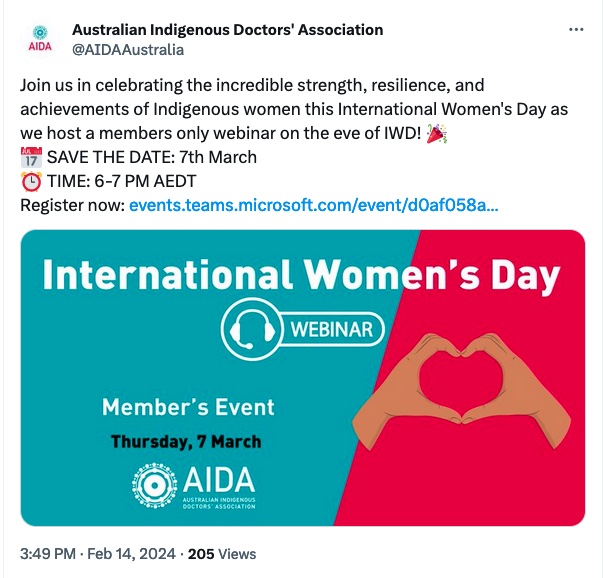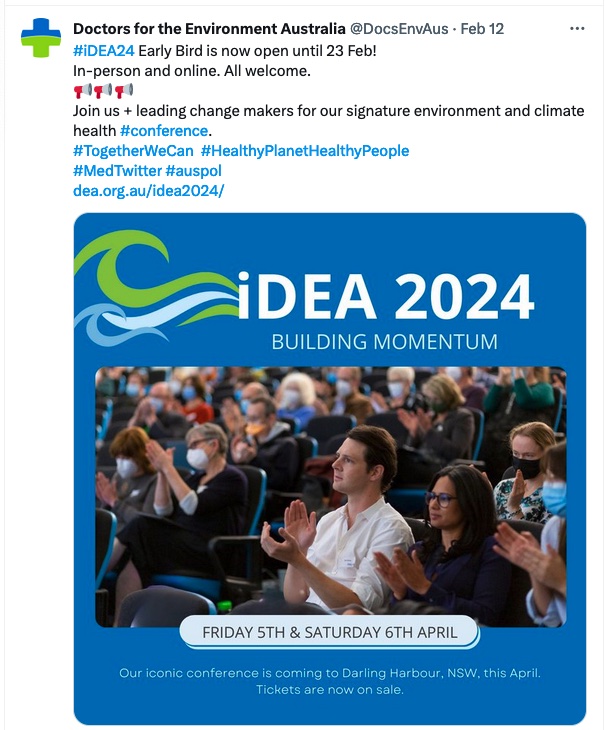As Victorian communities grapple with the aftermath of devastation and disruption, the column this week brings the latest news on climate and health.
We hope you enjoy our selection of Valentines for health, and don’t miss the preview of a new COVID-19 drama from the UK, Breathtaking.
As always, the column includes recent developments in global and public health, as well as photos from a recent University of Canberra event paying tribute to outgoing Chancellor, Professor Tom Calma AO.
The quotable?
The task for researchers and funders is to listen to the needs of those experiencing the mental health challenges of a changing climate and learn from stories of resilience and solutions.
So often, connection is at the heart of the solution – connecting across disciplines, sectors, countries and cultures, to act on the connections between the health of our minds and planet.”
Climate
This week, people in Victoria have experienced the harsh realities of a warming climate, experiencing devastating bushfires, wild storms and widespread power outages.
As an example of how the climate crisis intersects with other crises, this ABC report on the loss of 25 homes in Victoria’s west notes that a local housing shortage will make it even more difficult to find accommodation for those affected.

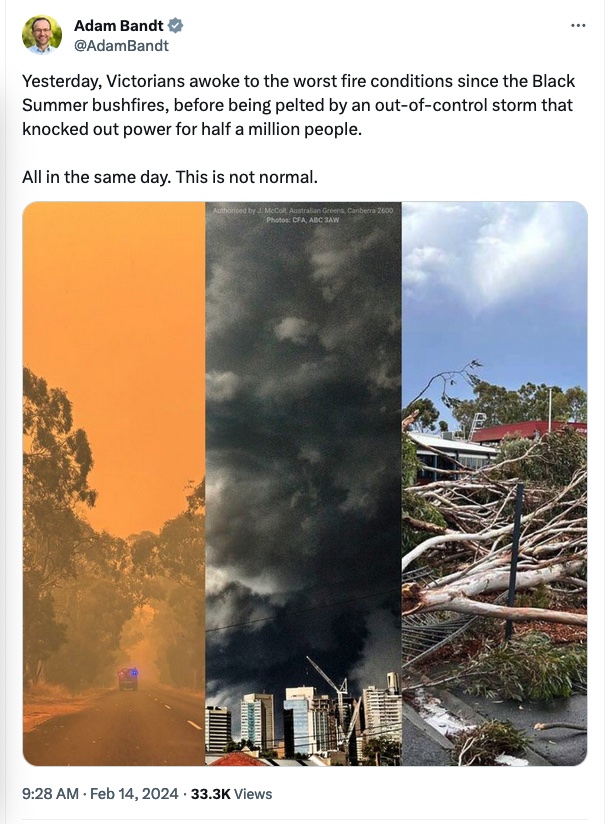
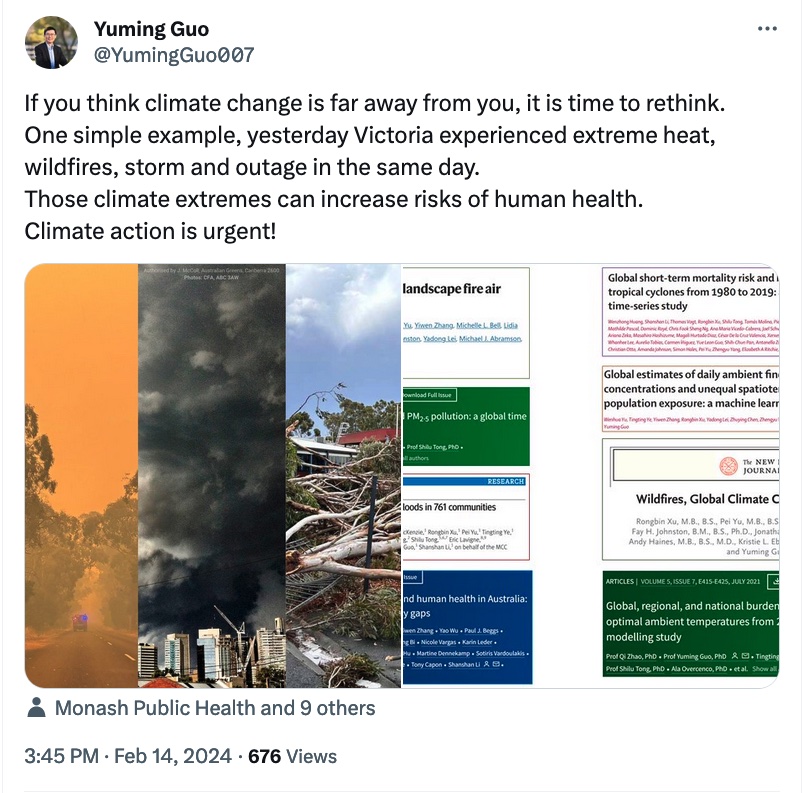
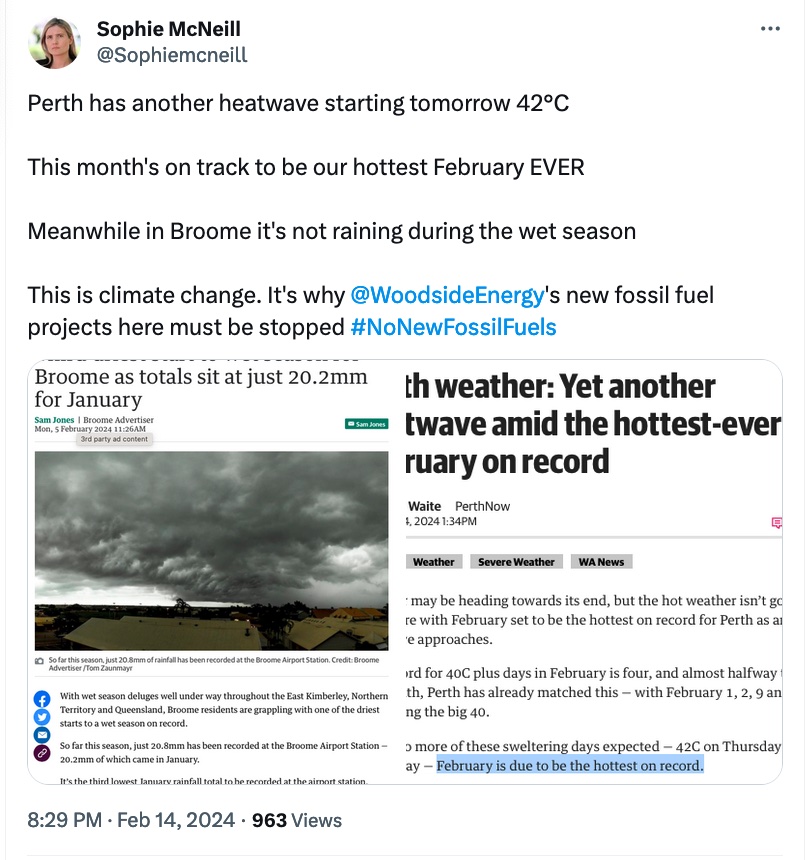
 From Queensland, a story on urban design exacerbating the impact of heatwaves.
From Queensland, a story on urban design exacerbating the impact of heatwaves. 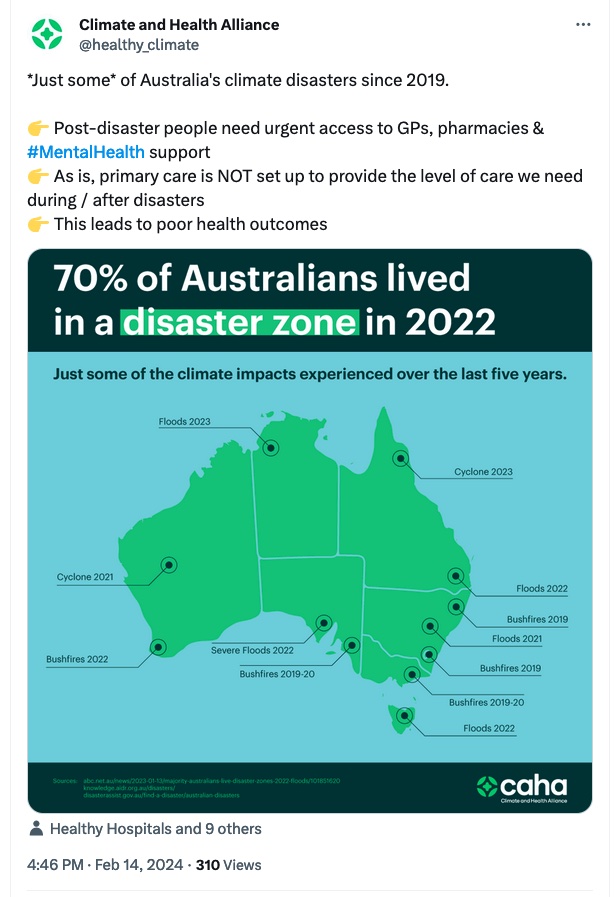

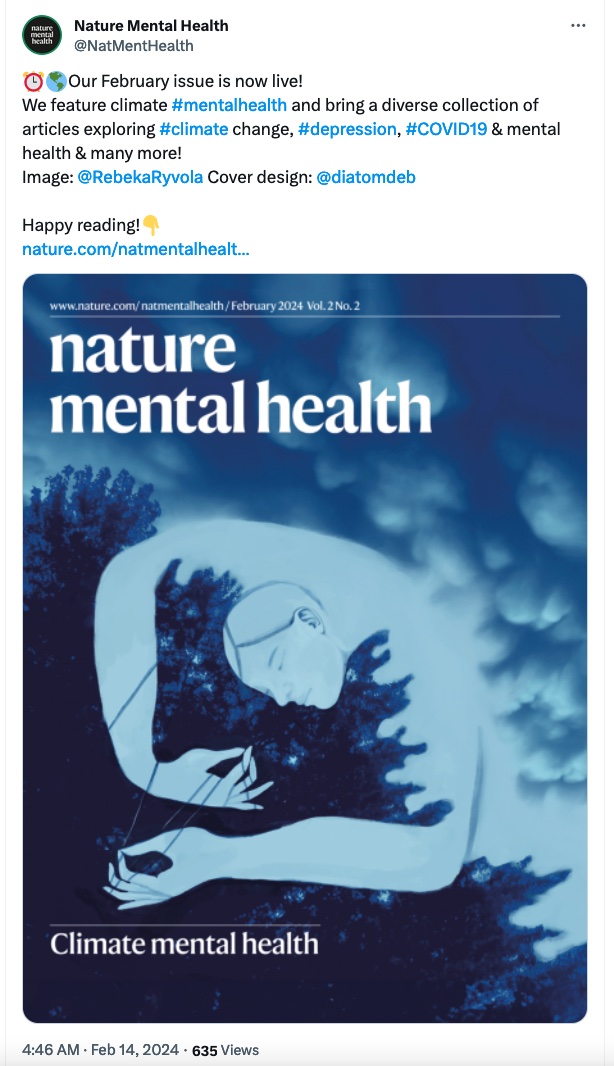 An editorial in this themed edition of Nature Mental Health describes climate mental health as a discipline is in its infancy and calls for research questions to be considered through a multidisciplinary lens.
An editorial in this themed edition of Nature Mental Health describes climate mental health as a discipline is in its infancy and calls for research questions to be considered through a multidisciplinary lens.
“Bringing climate scientists, mental health researchers and representation of the communities affected presents the best chance we have for mitigating the costs of the climate crisis,” it says.
The editorial cites Emma Lawrance, a researcher and fellow at the Institute of Global Health Innovation at Imperial College London, as describing the climate change and mental health field as “disconnected, unequal and siloed, with limited investment in this critical area of work for humanity”.
“The task for researchers and funders is to listen to the needs of those experiencing the mental health challenges of a changing climate and learn from stories of resilience and solutions,” Lawrance says. “So often, connection is at the heart of the solution – connecting across disciplines, sectors, countries and cultures, to act on the connections between the health of our minds and planet.” 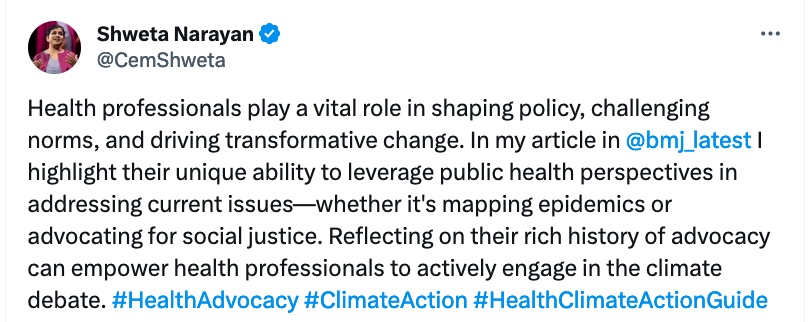
The Climate and Health Alliance (CAHA) has been acknowledged in this article in the BMJ highlighting the importance of health professionals engaging in climate advocacy.
Shweta Narayan, an international climate and health campaigner from Health Care without Harm, describes the work of CAHA in connecting climate change to the human impacts of extreme weather events, such as bushfires and flooding, during the 2022 federal election campaign.
Narayan urges health professionals to step forward as advocates for climate action through education of impacted stakeholders, public advocacy, legal action, policy change, cross-social solidarity, and mass mobilisation.
“The climate crisis is escalating to threaten the foundations of human civilisation, while disproportionately affecting marginalised and vulnerable populations,” Narayan writes. “Healthcare professionals should look back on the profession’s rich history of advocacy to drive engagement with the climate debate.”
Drama not to miss
See the preview of an acclaimed new COVID-19 drama, Breathtaking, portraying NHS hospitals in the early period of the pandemic.
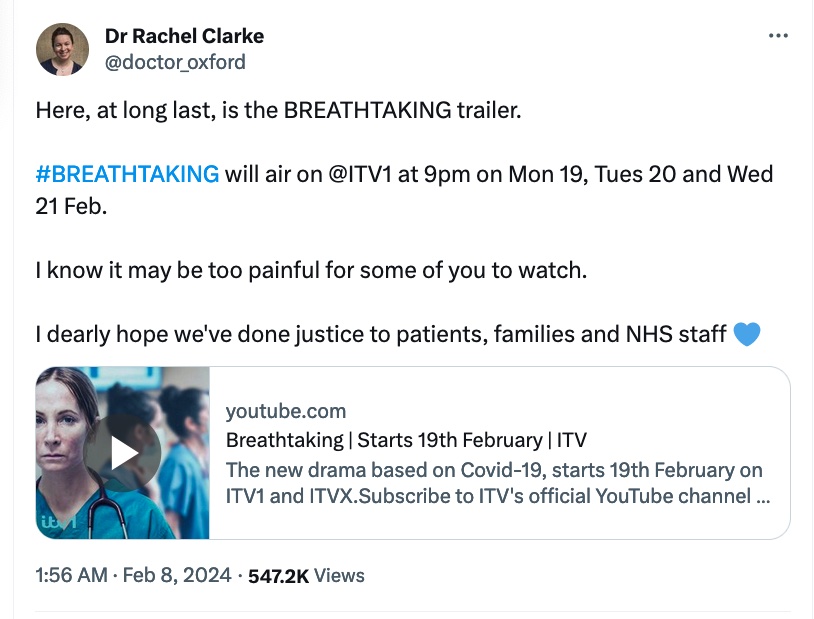



 Closer to home, the ABC documentary series Nemesis was far more focused on politics (specifically, the nasty internal machinations of the LNP) than policy. Viewers were left wondering about the consequences of so much political time and energy being expended on internal power plays.
Closer to home, the ABC documentary series Nemesis was far more focused on politics (specifically, the nasty internal machinations of the LNP) than policy. Viewers were left wondering about the consequences of so much political time and energy being expended on internal power plays.
One relevant policy insight came from former senior public servant Jane Halton’s recollection of swearing at her television in response to the infamous comment by former Prime Minister Scott Morris that “it’s not a race”, when asked about the slow COVID vaccine rollout.
“Manifestly we had longer lockdowns than we actually needed to have because we didn’t have supply and rollout as others,” she said. Read more at The Conversation.

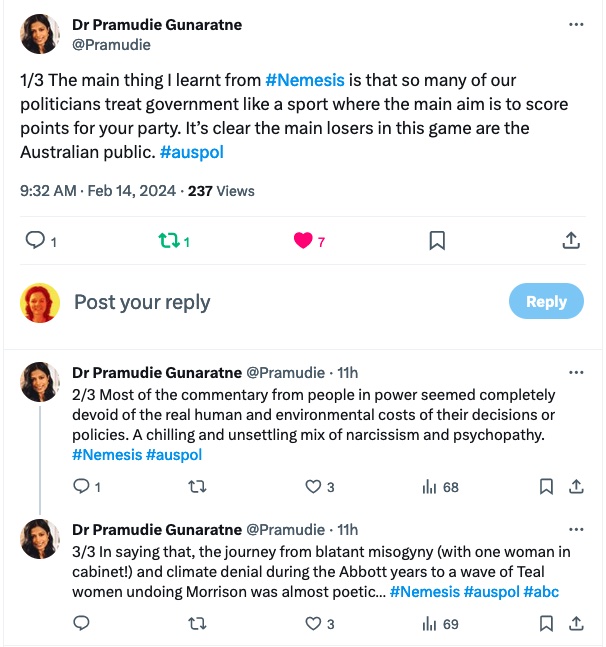
Valentines for health
Here’s to the creativity of those who provide a counter-narrative to the rampant commercialisation of Valentine’s Day, by putting the focus on health promotion and health policy.


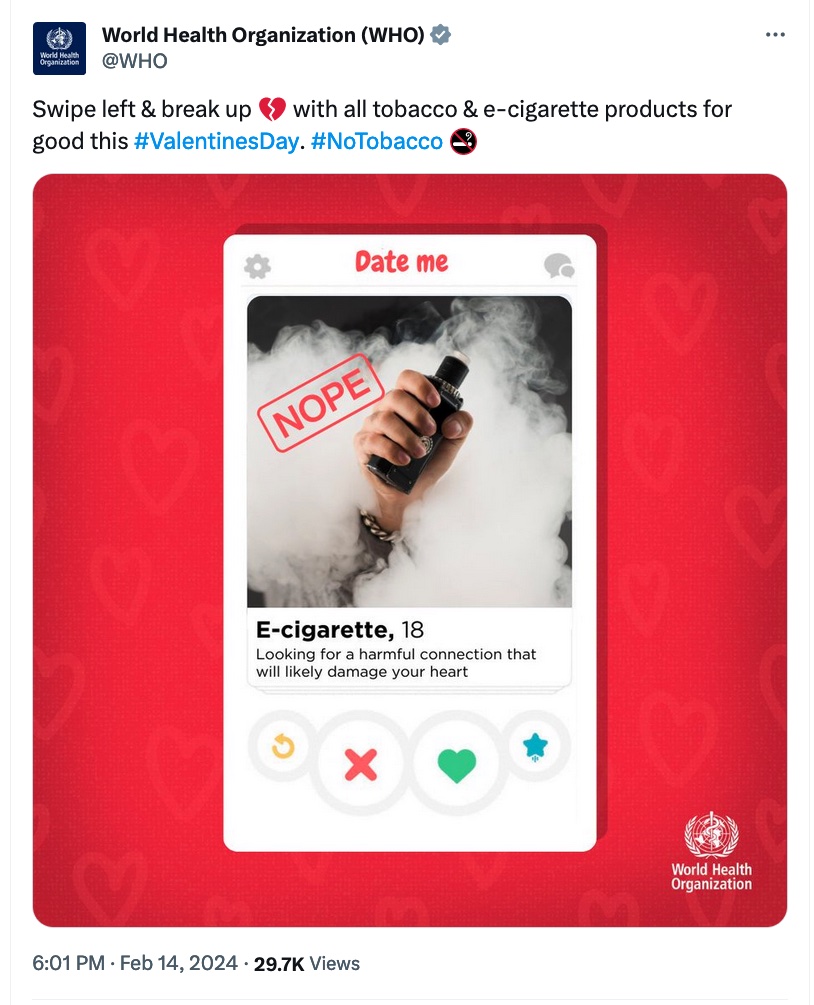
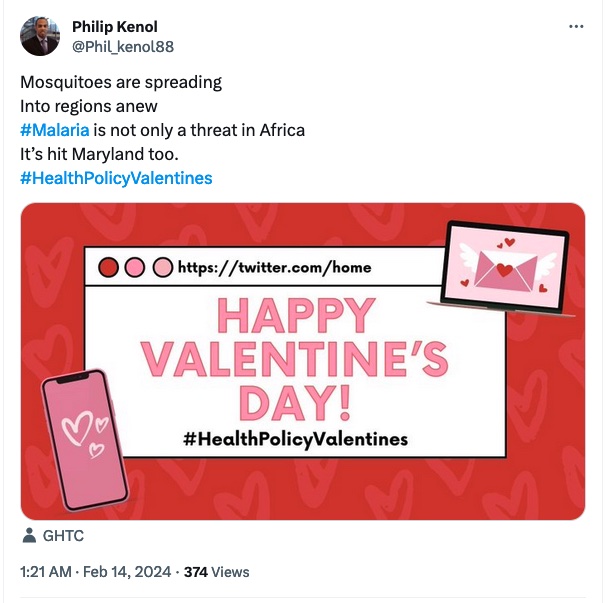
 …and a more traditional approach to Valentine’s Day.
…and a more traditional approach to Valentine’s Day.

First Nations health and research
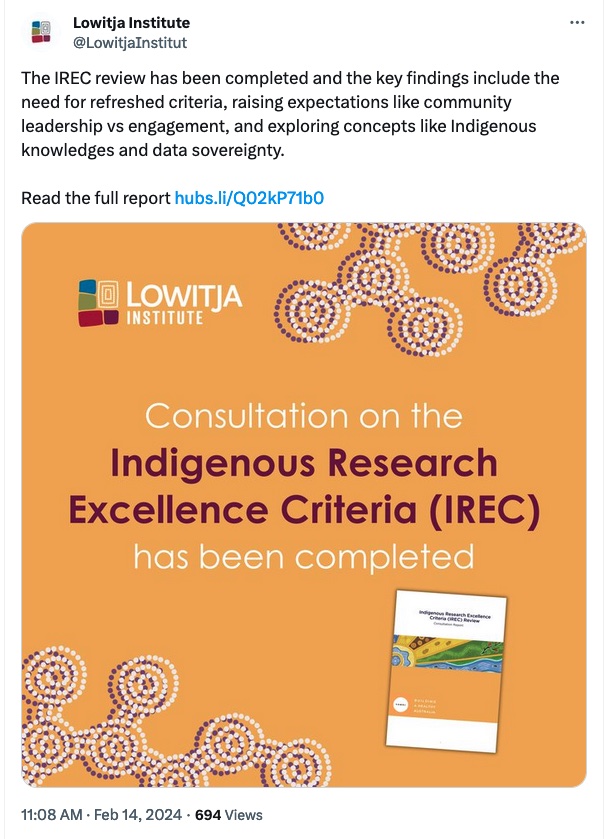
Last year, Lowitja Institute made a submission to the national consultation to review NHMRC’s Indigenous Research Excellence Criteria (IREC) and facilitated consultation activities at the Institute’s 3rd International Indigenous Health and Wellbeing Conference 2023.
The Institute says it is pleased to see that the IREC review consultation report has taken consultation feedback seriously and has recognised the need for proper community engagement and the inclusion of Aboriginal and Torres Strait Islander peoples’ ways of knowing, being, and doing.
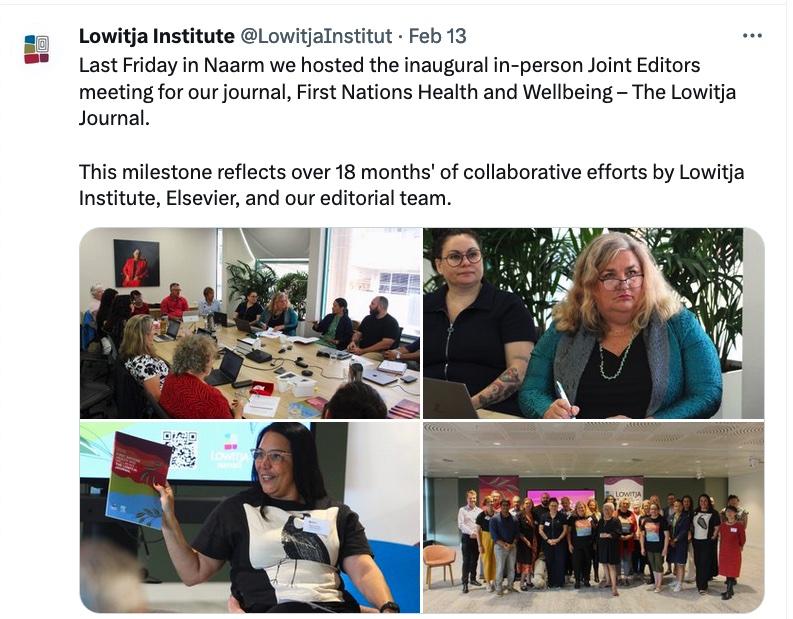
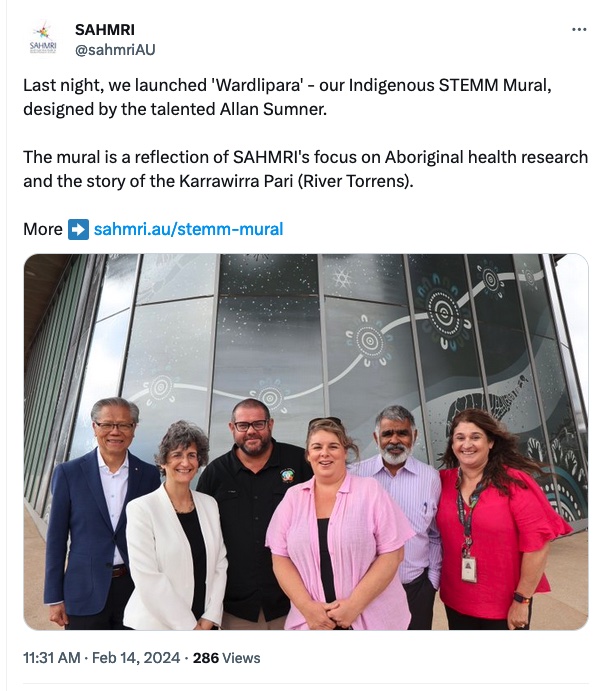
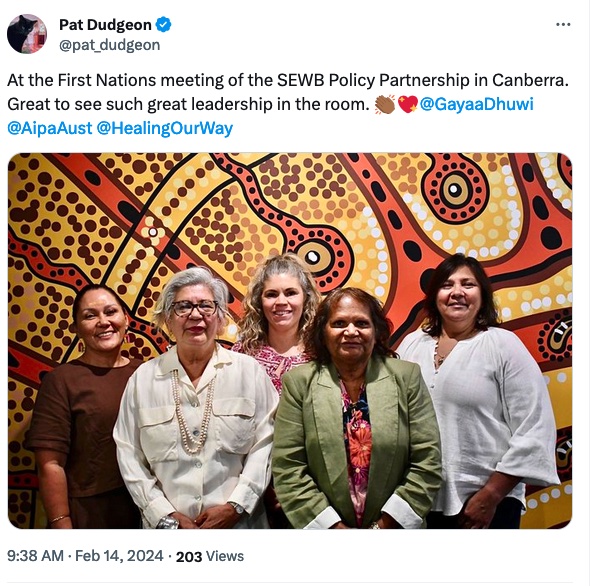
Celebrating Professor Tom Calma AO
The University of Canberra recently hosted a farewell to outgoing Chancellor, Emeritus Professor Tom Calma AO, whose work across multiple fields – including human rights, health, education, research, government, advocacy and service delivery – has been recognised through many awards and accolades.




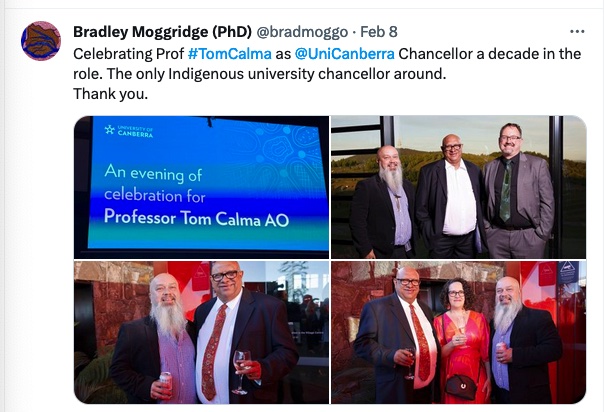
Conference spotlight
Follow #FoodGovernance2024 and @WePublicHealth for news from Food Governance 2024, “exploring how law, policy and regulation address food system challenges”.
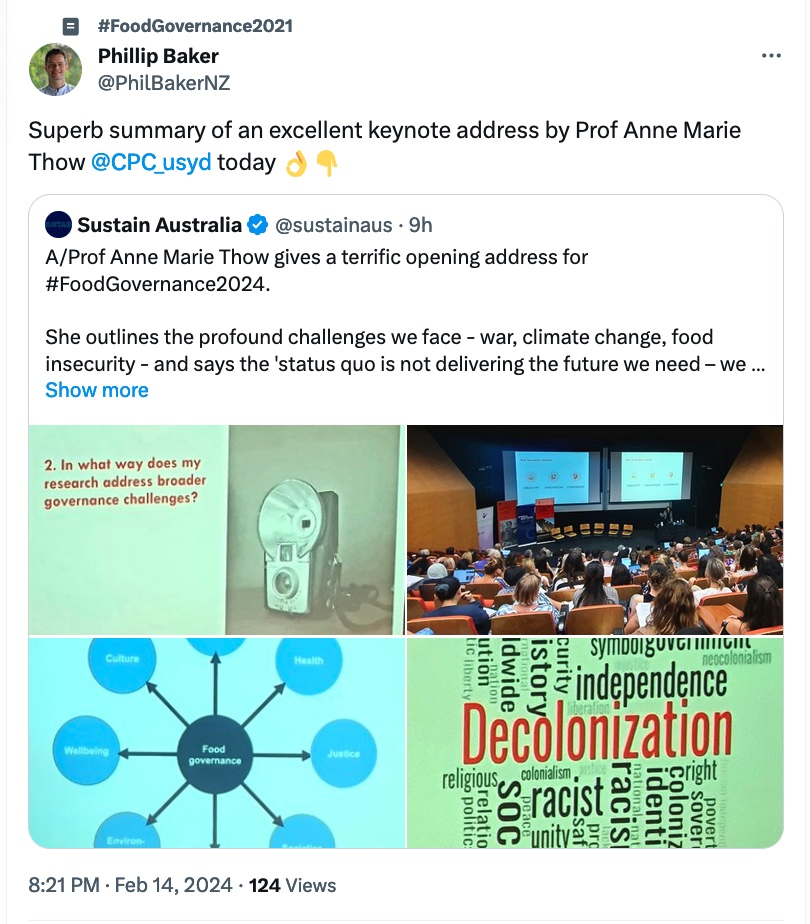
According to a X/Twitter report from Sustain Australia, Professor Anne Marie Thow challenged researchers to consider: how does my research address broader governance challenges; and how can my research support decolonisation, and draw on the wisdom of communities around the world to rethink local food systems?
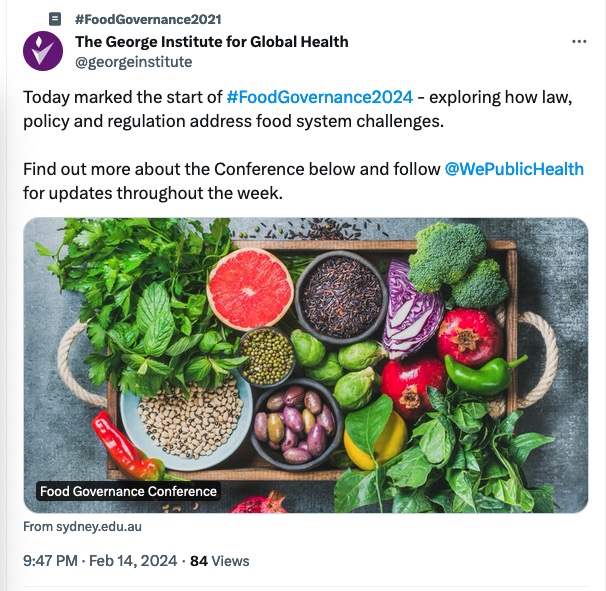
Global health
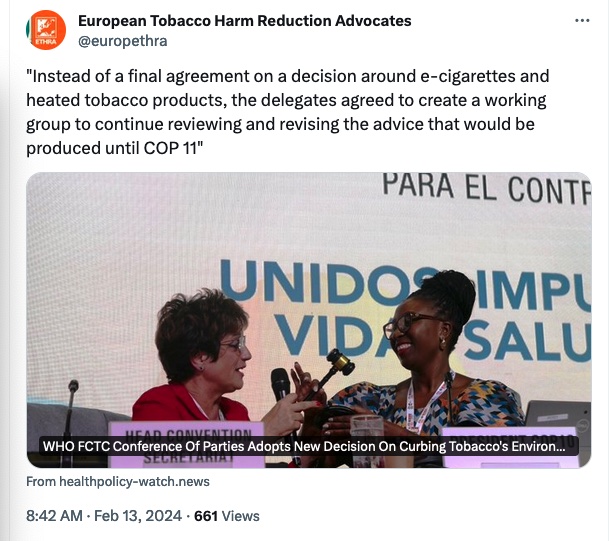 Health Policy Watch reports: The Tenth Conference of Parties (COP10) of the WHO Framework Convention on Tobacco Control (WHO FCTC) sidestepped a controversial debate on e-cigarettes and heated tobacco products – effectively kicking the can on any decisions related to regulation of that swelling market to the next meeting in two years time.
Health Policy Watch reports: The Tenth Conference of Parties (COP10) of the WHO Framework Convention on Tobacco Control (WHO FCTC) sidestepped a controversial debate on e-cigarettes and heated tobacco products – effectively kicking the can on any decisions related to regulation of that swelling market to the next meeting in two years time. 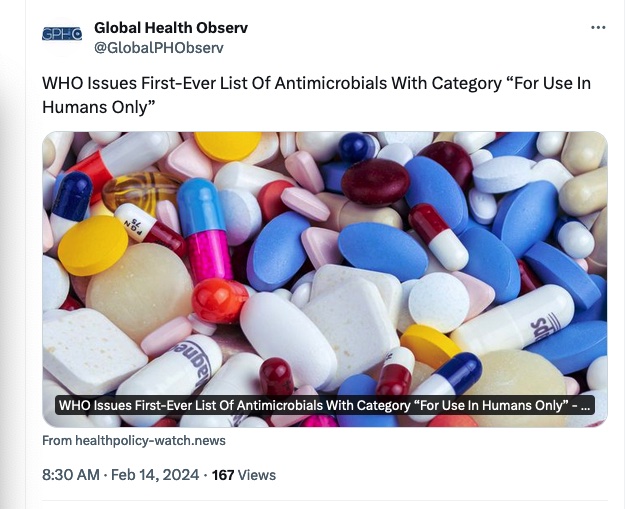 Health Policy Watch reports: The WHO has released a first-ever list of 21 antimicrobials earmarked as “authorized for use in humans only” – a first for the organization in its efforts to protect overuse and abuse of critical first-line drugs that need to be protected by overuse in animal and plant health sectors – and consequent antimicrobial resistance (AMR).
Health Policy Watch reports: The WHO has released a first-ever list of 21 antimicrobials earmarked as “authorized for use in humans only” – a first for the organization in its efforts to protect overuse and abuse of critical first-line drugs that need to be protected by overuse in animal and plant health sectors – and consequent antimicrobial resistance (AMR). 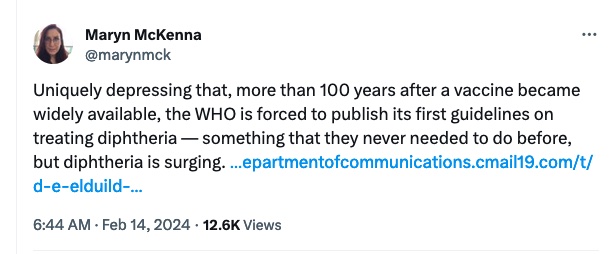 WHO publishes its first-ever clinical practice guideline on the management of diphtheria; it was rapidly developed due to the global increase in diphtheria outbreaks. Outbreaks of diphtheria in Nigeria, Guinea and neighbouring countries in 2023 have highlighted the urgent need for evidence-based clinical practice guidelines for the treatment of diphtheria. Given the sporadic nature of outbreaks, many clinicians in the affected regions have never managed acute diphtheria and its related complications.
WHO publishes its first-ever clinical practice guideline on the management of diphtheria; it was rapidly developed due to the global increase in diphtheria outbreaks. Outbreaks of diphtheria in Nigeria, Guinea and neighbouring countries in 2023 have highlighted the urgent need for evidence-based clinical practice guidelines for the treatment of diphtheria. Given the sporadic nature of outbreaks, many clinicians in the affected regions have never managed acute diphtheria and its related complications.
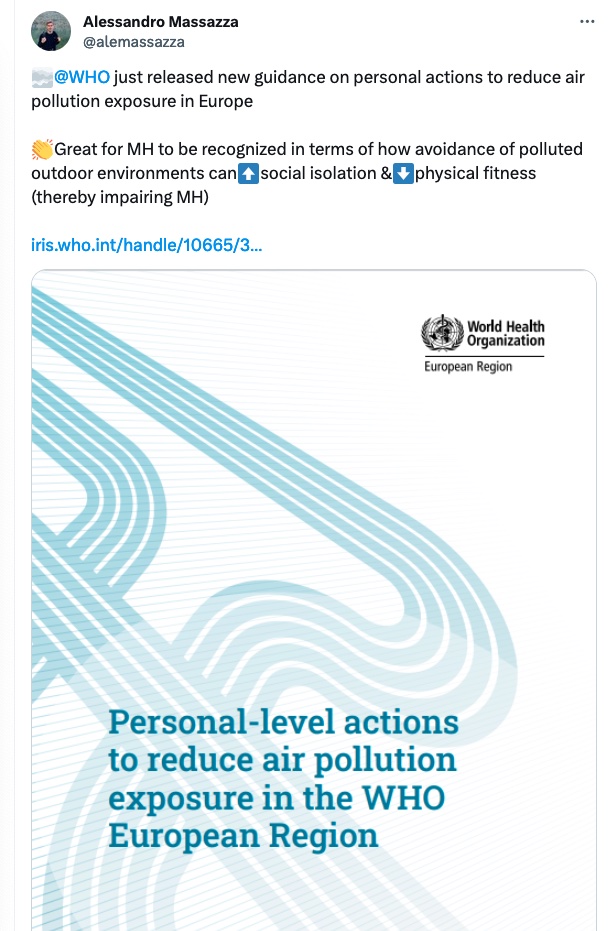 This new report covers personal actions such as reducing the amount of time spent in polluted outdoor environments, adjusting the location and timing of physical activity, using air cleaners, wearing face coverings, and mobility options (transport, active transportation, routes, driving style and vehicle settings).
This new report covers personal actions such as reducing the amount of time spent in polluted outdoor environments, adjusting the location and timing of physical activity, using air cleaners, wearing face coverings, and mobility options (transport, active transportation, routes, driving style and vehicle settings).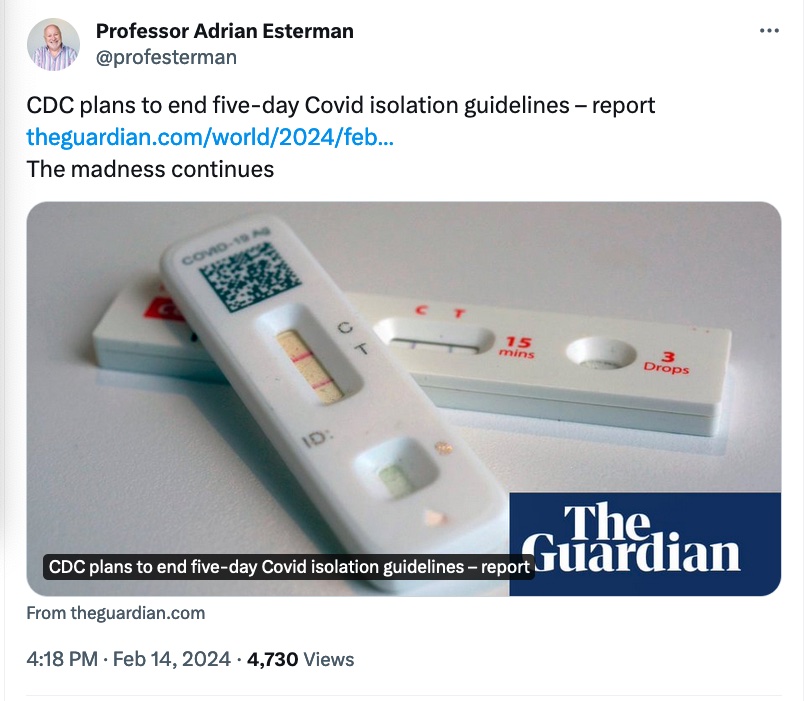

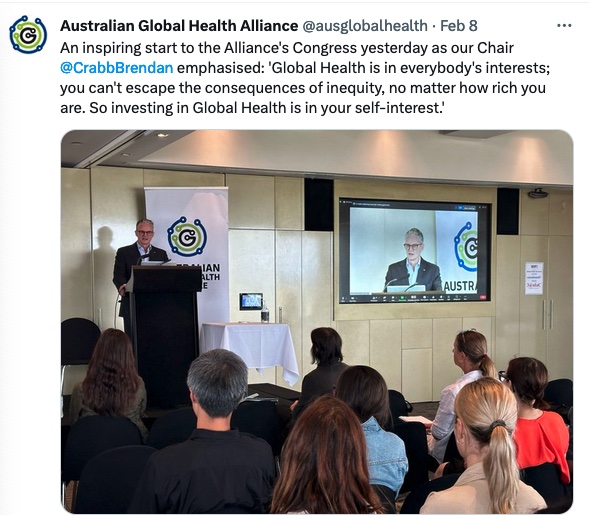
 Read Dr Lesley Russell on Obama’s enduring healthcare legacy
Read Dr Lesley Russell on Obama’s enduring healthcare legacy
Public health

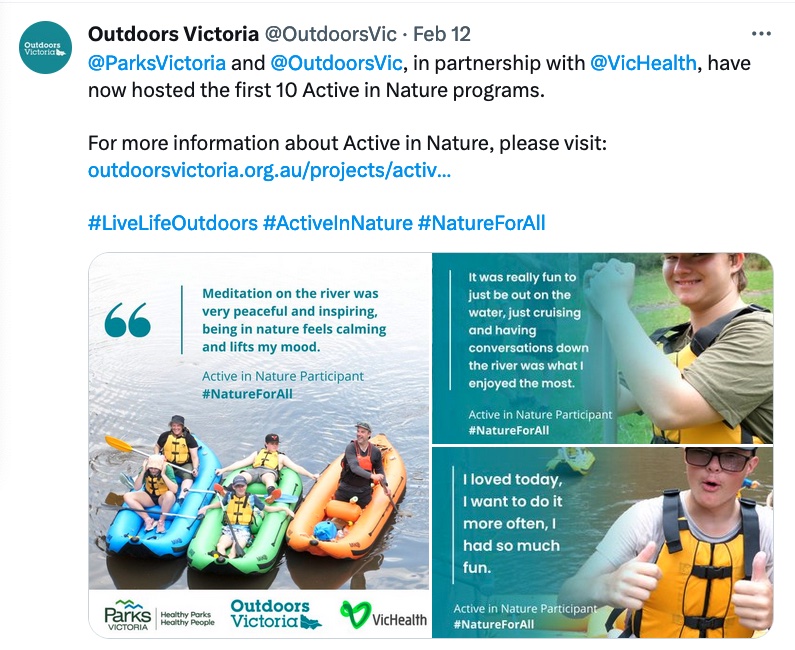
 Read: Too many Australians ‘missing out’ on vital dental care
Read: Too many Australians ‘missing out’ on vital dental care 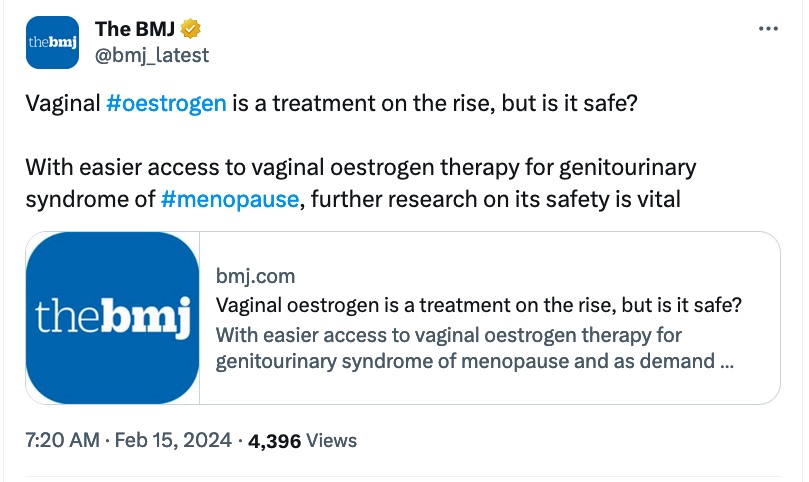
Read: Vaginal oestrogen is a treatment on the rise, but is it safe?
#AusPol
For lutruwita/Tasmania, an early election has been called for 23 March.


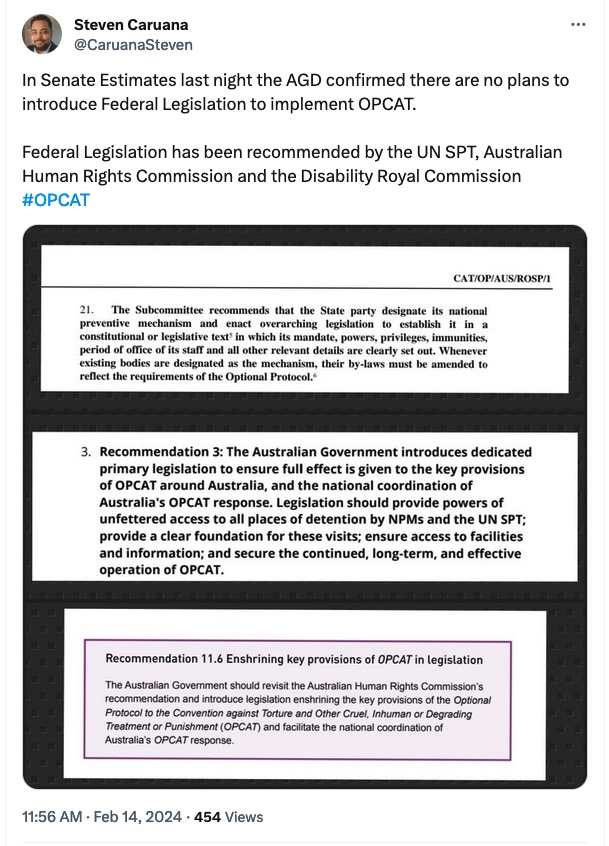

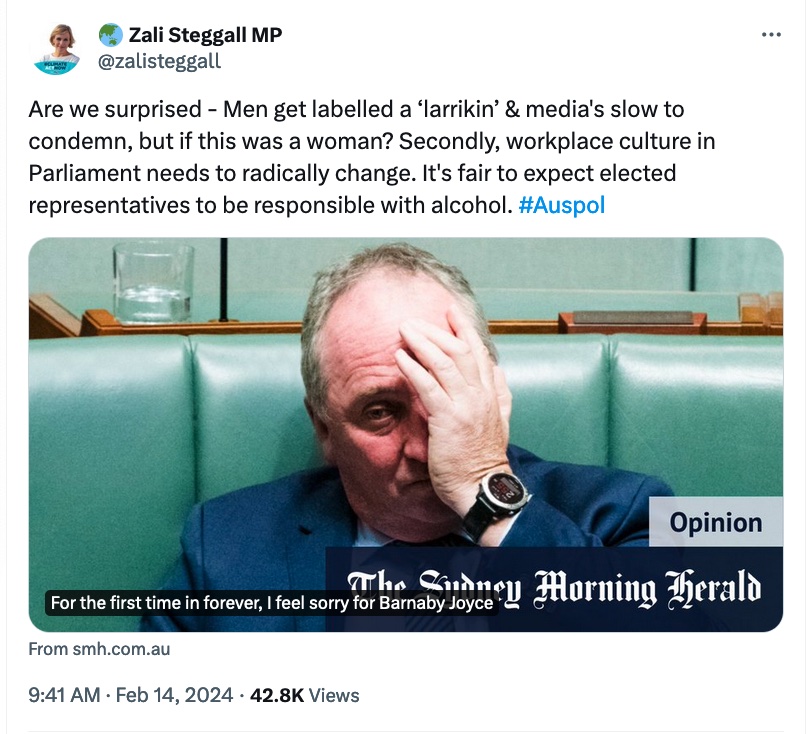
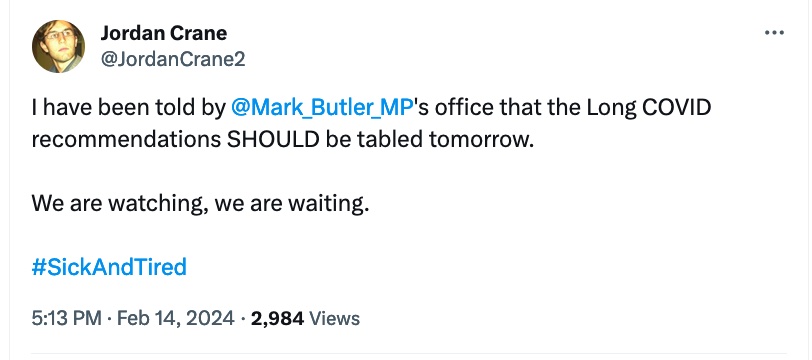
Opportunities


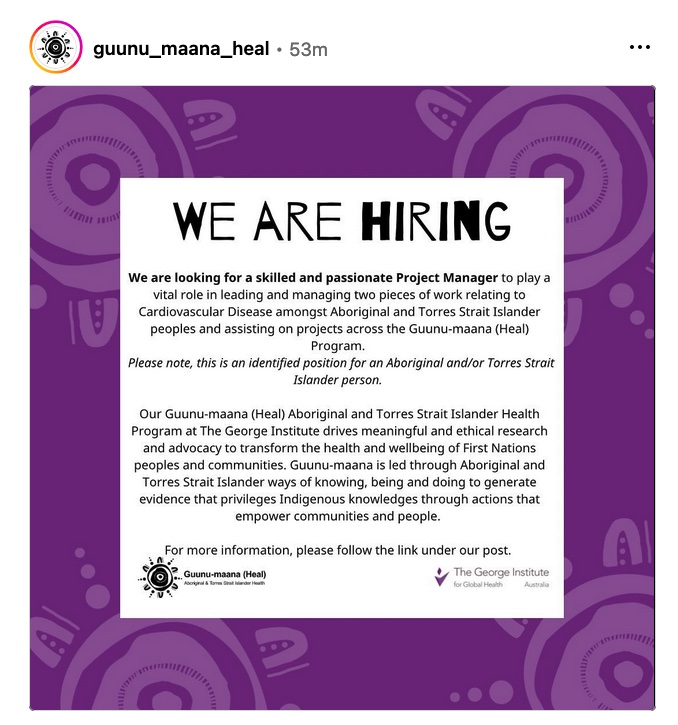
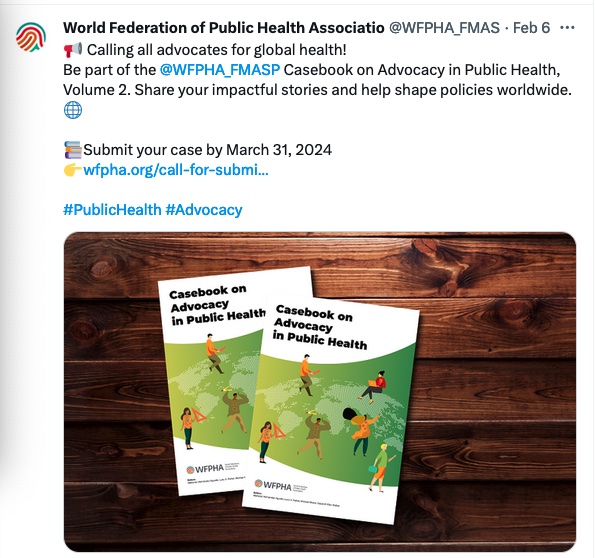
Events upcoming
